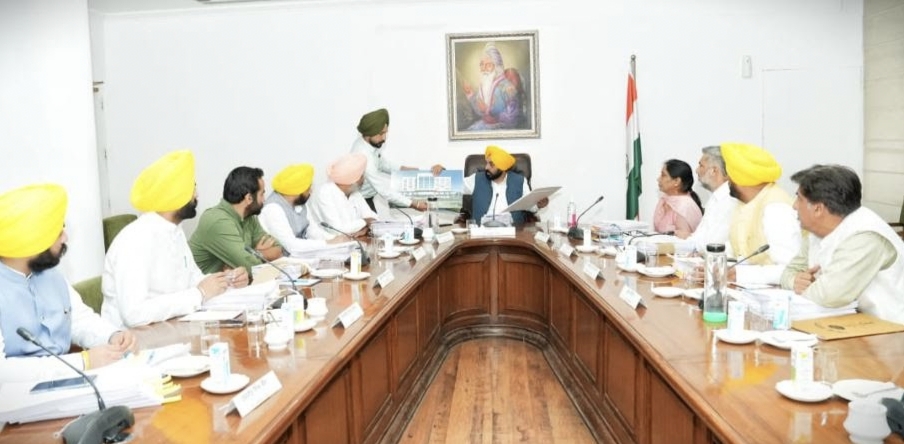Chandigarh: The Punjab Cabinet led by Chief Minister Bhagwant Mann on Friday gave nod to the New Punjab Food grains Labour Policy 2022 and the revised Punjab Food grains Transportation Policy 2022 to ensure wider competitive participation with increased transparency and at the same time reducing frivolous litigation.
A decision to this effect was taken by Council of Ministers chaired by the Chief Minister in its meeting held here at the Punjab Civil Secretariat- I.
Divulging the details a spokesperson of the Chief Minister’s Office said that the revised transportation policy is now in sync with the Custom Milling Policy for procurement and milling of paddy, approved by the Cabinet a few days back. The revised transportation policy mandates, for the first time ever, the installation of vehicle tracking systems in every vehicle used for transportation of food grains procured by the government. The Department of Food, Civil Supplies and Consumer Affairs has already initiated the process of empanelling companies, which provide vehicle tracking systems, and making the existing Anaaj Khareed Portal compatible with these systems.
Likewise, new Labour Policy aims at ensuring wider participation of Labour Associations by abolishing the prevailing Labour and Cartage Policy. The existing Labour and Cartage Policy, prevailing for past many decades, was perceived by many to favour participation of contractors, since it involved providing labour and transportation services by the same person. But the new Policy has completely delinked labor and transportation services thereby providing increased opportunities to Labour Associations to directly participate in the tender process, which will directly increase their incomes by removing the contractor margin, he explained.
Highlighting the aspects of the Labour and Transportation Policies, the spokesperson said that every effort has been made to make the system completely transparent by removing certain existing provisions, which were sometimes open to abuse and often caused frivolous litigations. An important step in this regard was taken by completely eliminating the submission of manual documents during the tender process, as many tenders were often rejected on account of minor discrepancies in their submission, he said.






